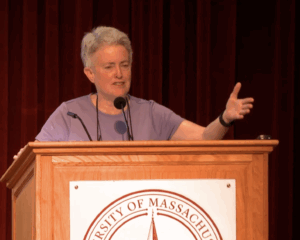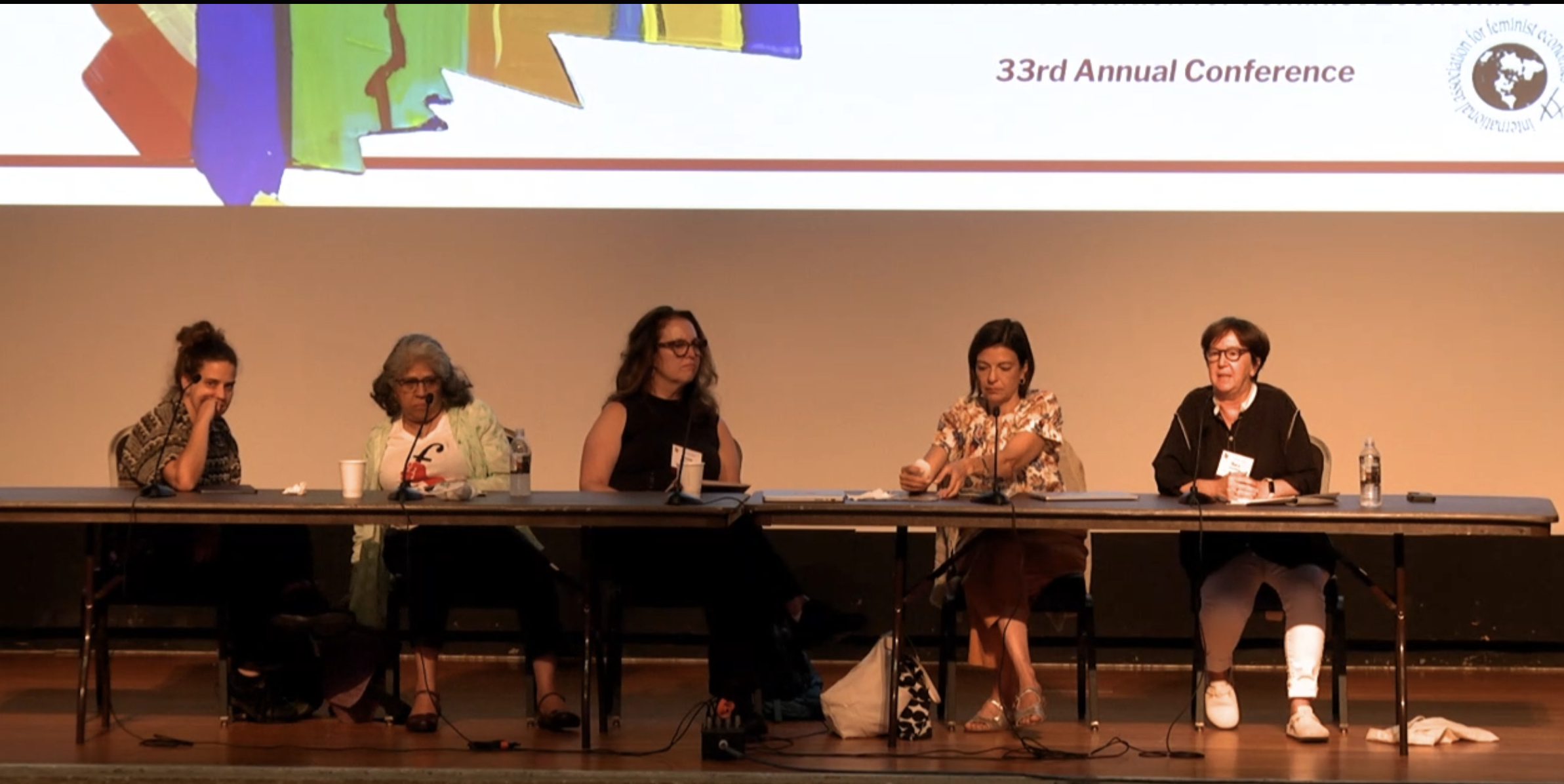Massachusetts, Boston– F is for feminism, and this was the mantra on the closing plenary of the 33rd International Association for Feminist Economics (IAFFE) Annual Conference 2025 that was held at the University of Massachusetts, Amherst from July 3 – 5, 2025. This provocative session set the tone for a bold and unapologetic platform that sought to reimagine global economics through a feminist lens.
Speaking during the session, Sara Cantillon said, “ The timing of discussing feminism is now. ” Cantillon noted that contemporary times can not impede the epistemology of feminism because its quintessentialism outweighs time.
Accordingly, İlkkaracan, a professor of economics at Istanbul Technical University (ITU), Faculty of Management, and associate director of the ITU Women’s Studies, said, ” I claim the term feminism in my classroom and my students are open to it.” This notwithstanding, feminism is still an ideology that many seem to be ambivalent about.
İlkkaracan acknowledged that the nuance of feminism does not come easily because, in some cases, she has been requested to “hush!” This, she claimed, happens predominantly in conferences that government officials predominantly attend.
İlkkaracan admitted that she has had to be mindful of her audience, particularly while engaging with the government officials, while discussing “gender.” I was invited to speak at a conference and I had to drop the word gender, yet gender is a main content of feminist economics,” confessed İlkkaracan.
Despite this rather unwelcoming view of gender and feminism, İlkkaracan still sees the essence of mainstreaming feminism.
“Beyond being political, the feminist narrative is now conceptualized in the gender, ” said İlkkaracan, “The economy must be alive to feminism.”
Speaking with the same tone, Elissa Braunstein, the Associate Dean for Research and Graduate Programs and Professor of Economics in the College of Liberal Arts at Colorado State University, and the current chair of the Research Committee at IAFFE, said, “The dominance of empirical work in feminist economics is so critical.” Braunstein reiterated that while feminism is not necessarily a natural science, it is a persuasive empirical idea that has been underscored by the Journal of International Women’s Studies.
Braunstein admitted that sometimes proving that feminist empiricism is not easy, however, the. The fact that qualitative and quantitative data are used to discuss feminist research does indeed qualify as an empirical study that warrants attention.
Braunstein also said that feminism is very distinctive because it is grounded in empiricism, particularly because it interrogates economic models that in turn reproduce gender powers. She maintained that IAFFE has been successful in advancing feminist scholarship and enabling research that addresses critical issues of gender and power in economic systems.
Braunstein also highlighted that IAFFE has published a high proportion of scholars from the global south, and international orientation is robust. Feminist economics, according to Braunstein, is under-cited in academia. Braunstein admitted that the pathway of feminist economics is quintessential.
 Accordingly, Radhika Balakrishnan, a Professor Emeritus at Rutgers University, said, “We should celebrate everything IAFFE feminist scholarship has done in the last few years.”
Accordingly, Radhika Balakrishnan, a Professor Emeritus at Rutgers University, said, “We should celebrate everything IAFFE feminist scholarship has done in the last few years.”
Balakrishnan lauded the milestones feminists and, by extension, feminism have achieved in the last four decades. Balakrishnan also noted that there is room for more to be done, and young scholars now have an opportunity to explore the feminist ideology in depth.
In a rejoinder to the same conversation, Luiza Nassif Pires, a research fellow working in the Gender Equality and the Economy program, said, “The necessity of feminist economists is for academic activism.” Pires underscored that there is room for academic activism for feminism that requires intentionality.
“Bringing feminism into academic activism has been a long process,” lauded Pires,” Academic activism for feminist economics is not an easy journey. “
Pires said that feminism in academia requires mentorship. She said embracing feminism in economics means that we need to understand how our re-lived experiences merge with current realities.
Pires emphasized that becoming a better feminist requires intentionality in challenging barriers that oppress. She also said that there is a need to take a feminist epistemological advantage.

